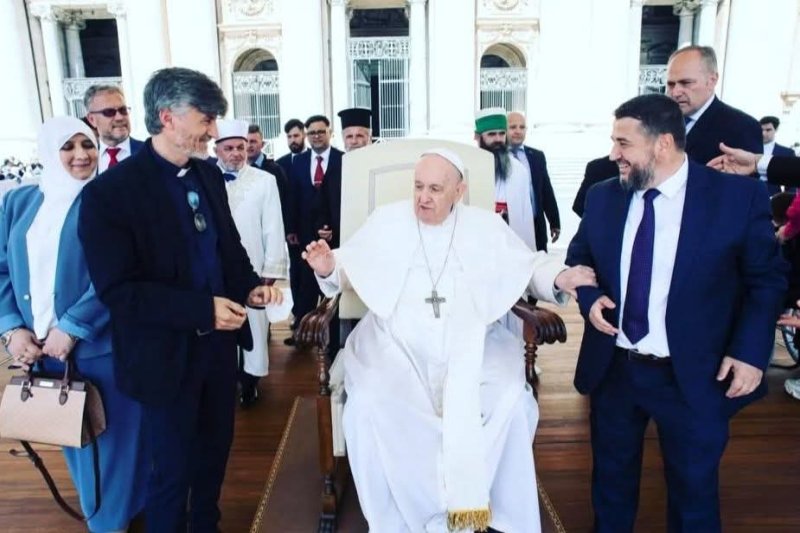Pope Francis: The Silent Architect of Our Conscience
There are moments in history when the voice of conscience is more necessary than the voice of power. In a world that measures success through dominance and numbers, Pope Francis chose the hardest path: the path of humility that rekindles hope and human nobility.
Today, as the world bows in reverence to his life after his passing, we honor a leader who, through his noble silence and moral courage, left an indelible mark on human conscience.
His figure was not merely the head of an ancient religious institution but the embodiment of leadership anchored in the dignity of the spirit rather than the might of speech. At the heart of his vision stood a bold idea: Abrahamic fraternity — coexistence and mutual respect among the three monotheistic faiths, built on shared belief in one God and a common responsibility toward humanity.
This ideal found its fullest expression in the Document on Human Fraternity signed in Abu Dhabi alongside Imam Ahmed el-Tayyeb. It was not a formal text; it was a heartfelt call to build a world where religion becomes a force for unity, not division.
Pope Francis transformed the Vatican into an open space for dialogue, where faith was not a wall but a bridge. He listened more than he spoke. He invited more than he commanded. In this spirit, he opened the Holy See to representatives of all faiths, demonstrating that true religious leadership lies in service, not privilege.
I had the rare honor of experiencing this spirit firsthand. As a representative of a delegation from the modest city of Elbasan in Albania, I had the privilege of meeting the Pope in the Vatican. We offered him the traditional xhamadan of Elbasan and the emblem of our Center for Interfaith Cooperation — a modest sign from a people who believe in coexistence and peace. The Pope received it with a warm smile and the kind of simplicity that only the truly great possess. In the end, he asked for no accolades, no applause — only, in a quiet voice that touched every heart, he said: "Pray for me."
Pope Francis did not remain silent in times when silence was more convenient than truth. When the world turned a blind eye to the tragedy of Gaza, he dared to speak. He remembered the victims, defended the innocent children, and reminded us that morality is not a luxury for times of peace but a duty for every moment and every living conscience.
In this spirit, we recall the noble words of the Holy Quran:
"And you will surely find the nearest of them in affection to those who believe to be those who say, 'We are Christians.' That is because among them are priests and monks and because they are not arrogant." (Surah Al-Ma'idah: 82)
At a time when many leaders rise to divide and many masses fall silent from fatigue, Pope Francis reminded us through his life and words that true leadership springs from humility and love.
He did not build new walls; he bridged souls. He did not seek to rule territories; he sought to win hearts. His legacy will endure not in stone cathedrals but in the consciences that dare to see themselves in the other.
Ultimately, without peace there is no honor. Without humility there is no humanity.













